🇮🇳 India | 🇺🇸 USA | 🇫🇷 France | 🇲🇽 Mexico | 🇦🇪 UAE
🇮🇳 India | 🇺🇸 USA | 🇫🇷 France | 🇲🇽 Mexico | 🇦🇪 UAE
🇮🇳 India | 🇺🇸 USA | 🇫🇷 France | 🇲🇽 Mexico | 🇦🇪 UAE
🇮🇳 India | 🇺🇸 USA | 🇫🇷 France | 🇲🇽 Mexico | 🇦🇪 UAE
4 Month
Mode: 💻Online| 🕒Self-paced| 🧑🏫Personalized

For International Students –
USD 500
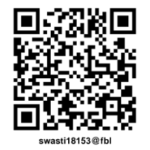
For Indian Students –
INR 20,000
4 month 400- hours Assistant Yoga Therapy Course (Level 1)
Duration (in weeks): 16 weeks part-time
Time commitment (hours per week) 8-10 hours
Skill level: Beginner, Level 1 YCB certified/ 400 hour Yoga TTC
Language: English
Syllabus: Yoga Therapy TTC (Level 1) Full Syllabus (click here to check syllabus)
Maximum group size: 8
Course Pricing:
Indian Students -INR 20,000
Intl. Students – USD 500 ( Including YCB Assessment Fees of 250 USD)
1. Name of the Certification: Assistant Yoga Therapist (AYTh)
2. Requirement/ Eligibility:
a. For open candidates there is no eligibility criteria
b. 10+2 pass
3. Brief Role Description: Can work under supervision of certified physician or certified
Yoga Therapist & Yoga Consultant on specific disorders.
4. Minimum age: No age limit
5. Personal Attributes: The job requires individual to have Good communication skills,
time management and ability to understand the body language of the trainees. The job
requires individual to possess key qualities such as self discipline, confidence, maturity,
patience, compassion, active listening, time management, empathy, language
proficiency, ability to build caring relationships, friendly and approachable, credibility
etc.
6. Credit points for certificate: 24 credits
7. Duration of course: Not less than 400 hours (Contact program for 100 hrs. to be
conducted on Anatomy, Physiology).
8. Mark Distribution: Total Marks: 200 (Theory: 60+Practical: 140)
UNIT 1 Basic Principles of Yoga Therapy
1.1 Concept of Yoga: Its Definition, Aim, Objectives and Misconception.
1.2 Significance of Hatha Yoga Practices- Shatkriyas, Yogasana, Pranayama, Mudra
and Bandha and Dhyana.
1.3 Guiding Principles to be followed by Yoga Therapy Assistant.
1.4 Roles and Responsibilities of Yoga therapy Assistant.
1.5 Scope and limitations of Yoga therapy Assistant.
1.6 Knowledge of vital parameters to assess general state of patients: Measurement
of Blood Pressure, Respiratory Rate, Pulse Rate and Body Temperature.
1.7 Knowledge of use of props: ropes/belt/cushions/special aids.
1.8 Importance of pre-procedural preparedness for therapeutic Yoga sessions.
UNIT 2 Yoga Therapy in Traditional Yoga Textsy
2.1 Basic Knowledge of various yogic texts such as Patanjala Yogsutra,
Hathapradipika, GherandaSamhita .
2.2 Knowledge of schools of Yoga: Karma Yoga, Bhakti Yoga, Jnana Yoga and
Dhyana Yoga.
2.3 Concept of klesha, Concept of chitta vritti ,
2.4 Ashtanga Yoga and its therapeutic importance.
2.5 Principles of Hathayoga , Hatha yogic practices in view of therapy.
UNIT 3 General Anatomy and Physiology
3.1 Basic knowledge of Human Body Skeleton; organization of body cells, tissues,
Systems, membranes and glands.
3.2 Basic Knowledge of Anatomy and Physiology of the following system —
Muscular, skeletal system; Digestive system; Respiratory system; Cardio vascular
system; Excretory system; Endocrine system.
UNIT 4 Yoga and Allied Science
4.1 Knowledge of Yogic Principles – Ahara, Vihar, Achar- Vichar.
4.2 Alternative Therapy: Basic principles of Ayurveda, Naturopathy.
4.3 Concept of holistic well being.
4.4 Yogic concept of healthy living: Tridosha, Tri dhatu –Mala.
4.5 Therapeutic importance of Dincharya and Ritucarya,
4.6 Importance of Diet (Aahara).
4.7 Yoga as preventive and promotive health care.
A. Demonstrative Skills
UNIT 1 Shatkarma: Knowledge and ability to perform the following Practices:
1.1 Neti (Jal and sutra) .
1.2 Dhauti
1.3 Trataka
1.4 Kapalbhati
1.5 Agnisara
1.6 Nauli
1.7 Shankhaprakshalana
UNIT 2 Yogic Sukshma Vyayama and Sthula Vyayama a. Yogic Sukshma Vyayam
2.1 Neck Movements
2.2 Shoulder Movements
2.3 Trunk Movements
2.4 Ankle Movements
b. Yogic Sthula Vyayama
2.5 Engine Daud
2.6 Sarvangpushti
UNIT 3 Yogasana
3.1 Standing Asana: Tadasana, Trikonasana, Vrikshasana, Ardhchakrasna, Padhastanasana, Parshavkonasana,
3.2 SittingAsana: Padmasana, Marjariasana, Vakrasana, Ardhamatsyendrasana, Janusirsasana, Paschimottanasana, Vajrasana, Suptavajrasana Ushtrasana, Gomukhasana , Mandukasana, Kurmasana, Kukkutasana, Bhadrasana.
3.3 Prone Lying Asana: Bhujangasana, Shalabhasana, Dhanurasana, Makarasana
3.4 Supine Lying Asana: Pawanmuktasana and its variation , setubandhasana, Viparitkarniasana, sarvangasana, Ardhahalasana, Uttanpadasana, Matsyasana, Halasana, Naukasana , Cakrasana , Shavasana.
UNIT 4 Pranayama
4.1 Breath Awareness
4.2 Sectional breathing
4.3 Nadishodhan Pranayama
4.4 Bhramari (with or without kumbhaka)
4.5 Ujjayi, Bhastrika,
4.6 Shitali-Sitkari.
UNIT 5 Bandha and Mudra
5.1 Jalandhara Bandha, Uddiyana Bandha, Mula Bandha, Maha Bandha,
5.2 Yoga Mudra, Maha Mudra, Shanmukhi Mudra, shambhavi mudra, Vipareet Karni Mudra
UNIT 6 Practices leading to Meditation
6.1 Pranav and Soham Japa
6.2 Yoga Nidra
6.3 Antarmauna
6.4 Ajapa Dharana
6.5 Om Meditation
B. Communication and Maintenance Skills
1. Relevance and importance of feedback form
2. Maintenance of the record of vitals of the patients’ pre and post therapy
3. Maintain interpersonal relationship with Yoga therapist and patients timely.
4 Knowledge of first aid procedure.
5. Knowledge of basic physical and clinical examination of the patient- blood pressure, pulse rate, respiratory rate, weight, temperature, height ,BMR etc..
6. Knowledge of policy and procedure for the therapeutic Yoga treatment.
7. Knowledge of correct ambulation of the patient.
8. Maintenance record of the patients grievances and escalate to the concerned authority.
9. Demonstrate the skills of infection control and use of personal protective equipment (PPE).
1. Name of the Certification: Assistant Yoga Therapist
2. Requirement/ Eligibility:
a. For open candidates there is no eligibility criteria
b. For admission in the course it is suggested/ desired that the candidate should be graduate in any health stream or have completed Basic Yoga Therapy Course.
3. Brief Role Description: Master Trainers in Yoga educational Institutions, Yoga training Courses and training programs. He or she can also act as Yoga Therapist under Medical professionals. Can teach in yoga studios, hospitals, Institutions of higher Learning.
4. Minimum age: No age limit
5. Personal Attributes: The job requires individual to have good communication skills, time management skills and ability to understand the body language of the trainees. The job requires individual to possess key qualities such as self-discipline, confidence,
maturity, patience, compassion, active listening, time management, empathetic, language proficiency, engaging with students, dedication to teaching, ability to build caring relationships with students, friendliness and approachability, Independent, credible, analytical skills etc.
6. Duration of course: Not less than 150 hours or not less than 2 months as part time
8. Mark Distribution:
Total Marks: 200 (Theory: 80+Practical – 120)
Theory
Unit No. | Unit name | Marks |
1 | Yoga and Health | 20 |
2 | Anatomy, Physiology, Pathophysiology, Diseases | 20 |
3 | Therapeutic practices of Yoga | 20 |
4 | Yoga as Therapy | 20 |
Total | 80 |
Practical
S No. | Practical Work | Marks |
1 | Demonstration Skills | 60 |
2 | Therapeutic Skills | 20 |
3 | Teaching and evaluation Skill | 20 |
4 | Application of knowledge | 10 |
5 | Field Experience (Healthcare settings) | 10 |
Total | 120 |
FUNDAMENTALS OF YOGA THERAPY
YOGIC CONCEPT OF HEALTH
AYURVEDA AND YOGIC PHYSIOLOGY
KEY CONCEPTS OF HATHA YOGA
YOGIC CONCEPT OF MENTAL HYGIENE
YOGIC CASE TAKING
General examination
vital signs:
Systemic examination
Cardiovascular examination
Peripheral vascular examination
Respiratory examination
Abdominal and retroperitoneal examination
Musculoskeletal examination
Neurologic examination
Head and neck examination
Gynaecological, Obstetric history
Menstrual history
Kosha examination
Yogic lifestyle evaluation
Diet history
Sleep history
Work place stress history
Postural habits, exercise/ yoga
Habits: alcohol, smoking, coffee, tea
Daily regimen
Seasonal regimen
Yama/ social restraints
Niyamas/ personal restraints
Diagnosis:
Advice: Dos and Don’t:
Yogic management:
Ahar
Vihar
Achar
Vichar
Vyavahar
YOGA THERAPY FOR DISEASES ACCORDING TO SYSTEMS
THE CARDIOPULMONARY SYSTEM
ANATOMY AND PHYSIOLOGY
Systemic circulation
Pulmonary circulation
DISEASES AND YOGA MANAGEMENT:
THE RESPIRATORY SYSTEM
ANATOMY AND PHYSIOLOGY
DISEASES AND YOGA MANAGEMENT:
THE ENDOCRINE SYSTEMS
Anatomy and Physiology
DISEASES AND YOGA MANAGEMENT:
THE SKELETAL SYSTEM
ANATOMY AND PHYSIOLOGY
THE MUSCULAR SYSTEM
ANATOMY AND PHYSIOLOGY
DISEASES AND YOGA MANAGEMENT:
DISEASES AND YOGA MANAGEMENT:
THE NERVOUS SYSTEM
ANATOMY AND PHYSIOLOGY
ORGANISATION OF THE NERVOUS SYSTEM
CENTRAL NERVOUS SYSTEM
PERIPHERAL NERVOUS SYSTEM (PNS)
AUTONOMIC NERVOUS SYSTEM
DISEASES AND YOGA MANAGEMENT:
MODERN PSYCHOLOGY AND PSYCHOANALYSIS Basics of Psychology
DISEASES AND YOGA MANAGEMENT:
THE DIGESTIVE SYSTEM & YOGIC NUTRITION
Anatomy and Physiology
DISEASES AND YOGA MANAGEMENT: 1. Constipation
THE IMMUNE SYSTEM
Anatomy and Physiology
Natural and Acquired Immunity
Inflammation
DISEASES AND YOGA MANAGEMENT: 1. Fever
THE URINARY SYSTEM
Anatomy and Physiology
DISEASES AND YOGA MANAGEMENT: 1. Renal hypertension
THE REPRODUCTIVE SYSTEM
MALE REPRODUCTIVE SYSTEM
Anatomy
FEMALE REPRODUCTIVE SYSTEM
Anatomy
Female reproductive cycle
Foetal changes
Hatha yoga for the male reproductive system Hatha yoga for the female reproductive system Hatha yoga during menstruation
DISEASES AND YOGA MANAGEMENT: 1. Pregnancy and Childbirth
EMERGENCY MEDICINE
CPR—Adult
CPR—Infant
First Aid
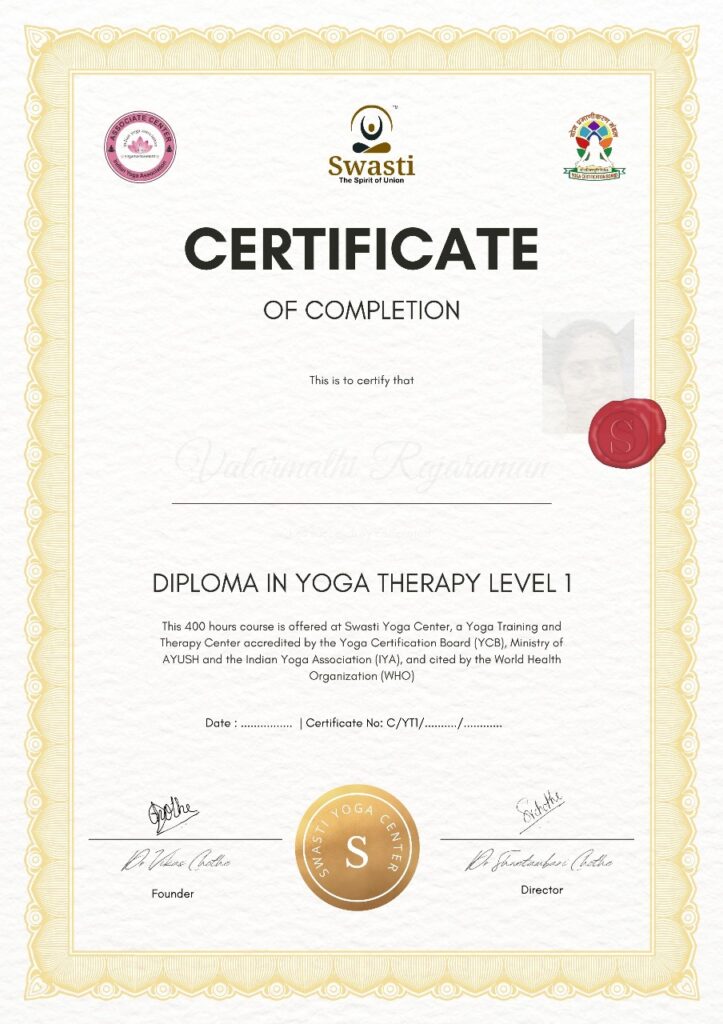
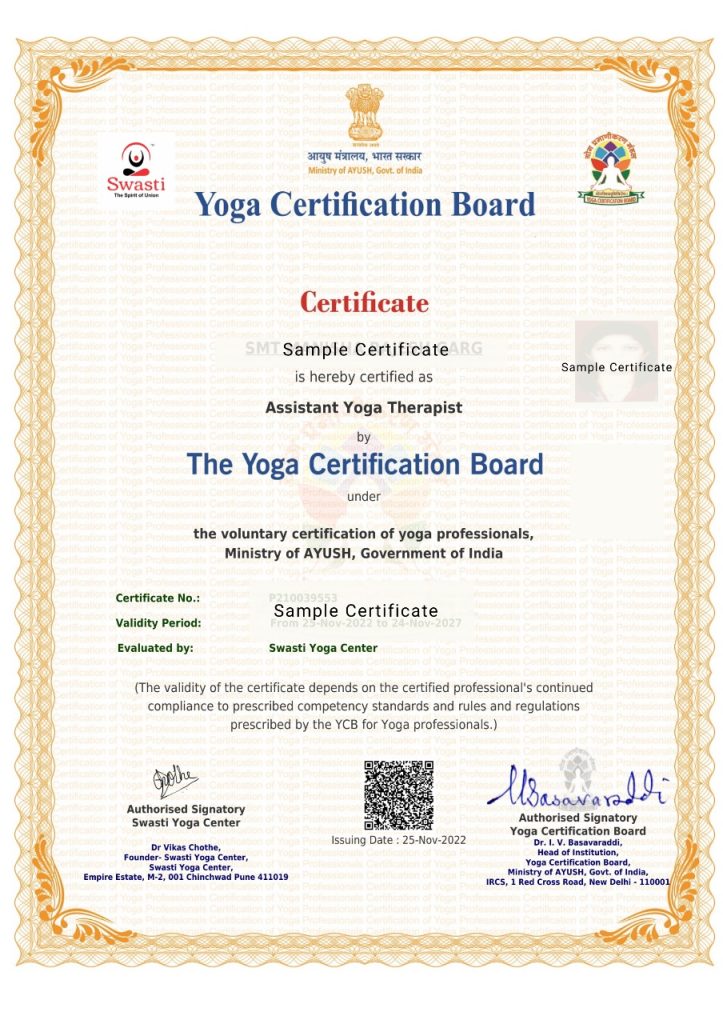
Trustindex verifies that the original source of the review is Google. I visited the yog centre and came back with a lot of inspiration enthusiasm and knowledge. It is a very good place for gaining yog experience knowledge and facts. Surely recommendedPosted onTrustindex verifies that the original source of the review is Google. Today we had field visit to swasti yoga centre And we get to know more about the center and also about Dr Vikas Chothe and his contribution to spreading yoga all around World. It's so good to see the center and the coachPosted onTrustindex verifies that the original source of the review is Google. Great people, geat place trying to make great yoga great again!Posted onTrustindex verifies that the original source of the review is Google. Great experience...they are promoting yoga globally...🙌Posted onTrustindex verifies that the original source of the review is Google. I liked the wall-clock very muchPosted onTrustindex verifies that the original source of the review is Google. शुभ सकाळ 😊 💫कर्म योग चे प्रतिबिंब स्वस्थ योग🙏💐Posted onTrustindex verifies that the original source of the review is Google. It's really good 👍🏻 It is One of the best Yoga centre In punePosted onTrustindex verifies that the original source of the review is Google. It was wonderful experience to know more about yoga and how its creating awareness globally. Thank you 😊Posted onTrustindex verifies that the original source of the review is Google. It was a great experience visiting at swasti yoga centre. We got an inspiration to develop skill in the field of swasthavritta.Thankyou for the motivation.
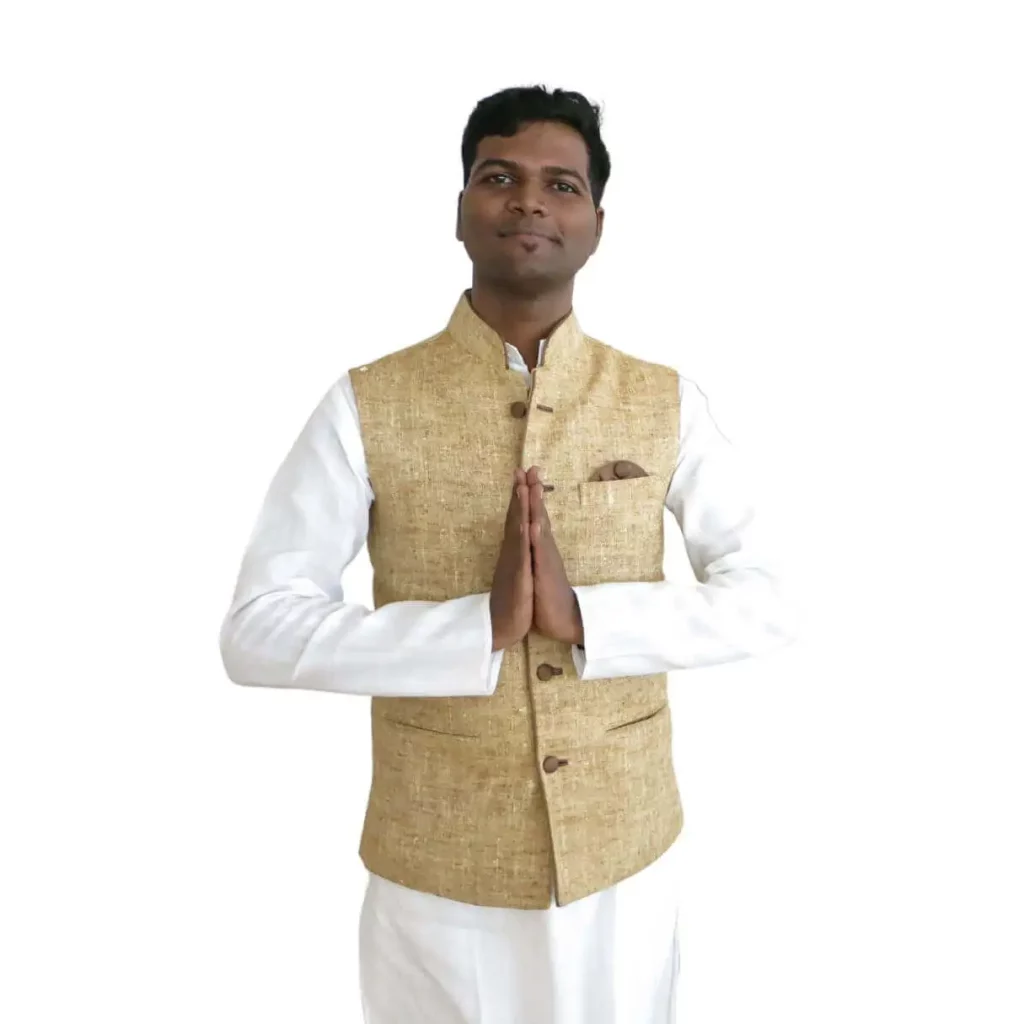
Dr. Vikas Chothe
Swasti’s founder, Dr.Vikas Chothe, holds an MD, PhD in Ayurvedic medicine with Yoga Certification from AYUSH and QCI India. He has worked as a Yoga Ambassador for the government of India and is currently an examiner for YCB Yoga examination at TQ Cert (TATA projects) for the Yoga Certification Board. He has been working as a lead examiner since the beginning of the Yoga Certification Scheme in 2016 and has conducted exams for more than 3,000 students till date. Dr.Vikas has been invited by Indian Embassy Austria, Malaysia and Armenia and has visited USA, China, Malaysia, Italy and European countries for propagation of Yoga and Ayurveda. He is also yoga school auditor for the Yoga Certification Board (YCB) creating quality standards in yoga schools globally.
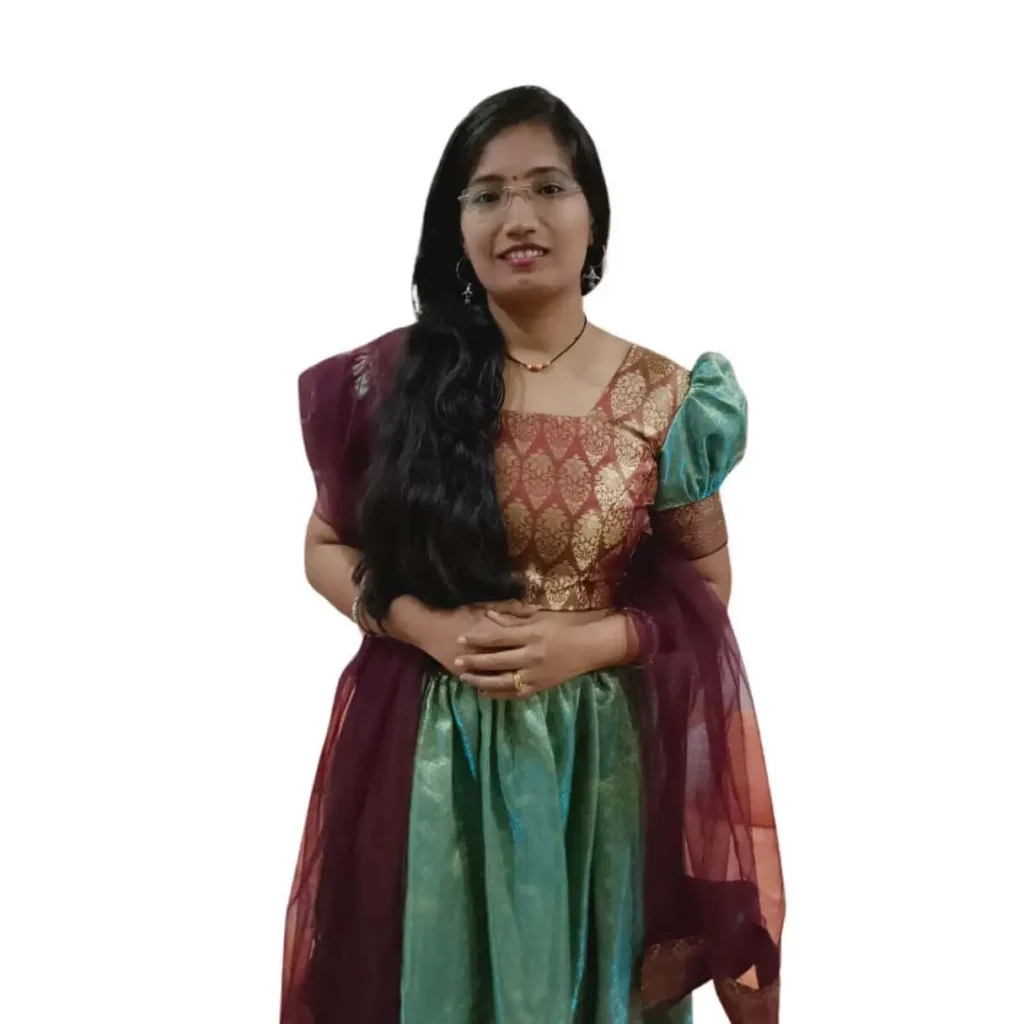
Dr. Shwetambari Vikas Chothe
Dr. Shwetambari Chothe is a Level 4 Yoga Master certified by Government of India, gold medalist in Masters in Yogashastra, consulting homeopath and co-founder of Swasti Yoga Center. Since childhood, she had a keen interest in yoga and Indian culture. She is a great chef with Ayurveda healthy cooking as her specialty. Qualifications: MD Homoeopath, Anatomy and Physiology expert, yoga teacher and practitioner for six years.
Before enrolling, ask three essential questions to confirm authenticity:
Is the institute officially accredited by the Yoga Certification Board (YCB) under the Ministry of AYUSH?
Are the trainers recognized YCB lead examiners, and how long have they been certified?
How many YCB exams has the institute conducted as lead examiners to show real experience?
These checks protect you from unrecognized institutes that misuse the YCB logo or make false claims.
How to verify accreditation:
Visit the official Yoga Certification Board website: https://yogacertificationboard.nic.in/, and under menu navigation, you will find YCB Certified -> Accredited Yoga Institution. Confirm the institute’s name under the list of accredited centers and examiners before enrolling.
Example –
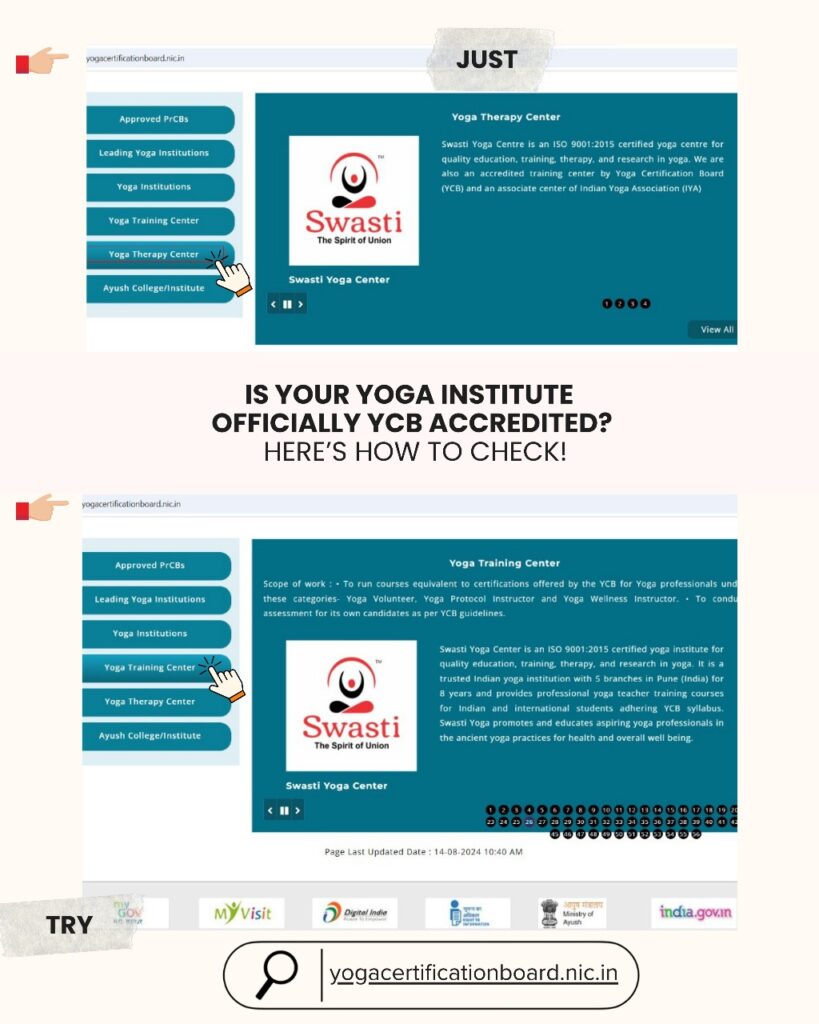
The course fee depends on your location. For Indian students the fee is INR 20,000. For international students the fee is USD 500, which includes the USD 250 Yoga Certification Board (YCB) assessment fee. Accommodation, food, yoga props are not included.
The Level 1 Yoga Therapy Course spans 4 months, comprising a total of 400 hours, with an estimated weekly commitment of 8–10 hours.
Yes. Swasti Yoga Center offers paid services of clean and comfortable rooms close to the campus in Pune. Accommodation is simple and peaceful — ideal for yoga practice. It’s not included in the Course fees. You can check available options on the Accommodation page.
All meals are pure vegetarian and sattvic. The food is freshly cooked, balanced, and supports your yoga routine. Learn more on the Yogic Food page.
Swasti regularly hosts students from many countries. The environment is safe, and the team ensures support for women and solo travelers. The campus is in a secure area, and staff are available for any local assistance you need.
Yes, international students usually need a tourist or student visa based on the course duration. After enrollment, Swasti guides you with your visa process. Learn more on the Admission page.
Yes. Swasti Yoga Center is certified by the Yoga Certification Board (YCB) under the Ministry of AYUSH, Government of India. You’ll receive an internationally recognized certificate after successful completion.
Yes. Study materials will be provided by Swasti Yoga Center.
To join the course, simply fill out the contact form on our website or get in touch with us directly.
You can call or WhatsApp us at +91-9922916025 / +91-8830079878, and our team will guide you through the next steps for enrollment and payment.
Subscribe Us
For Latest Update on Yoga in India and Worldwide
Swasti Yoga Center is a WHO-cited, Yoga Certification Board (YCB-IYA- AYUSH)-certified, and ISO 9001:2015 accredited Yoga Training and Therapy Institute, dedicated to delivering excellence in yoga education, therapy, training, and research.
Copyright © 2026 Swasti Yoga Center, India , All rights reserved.